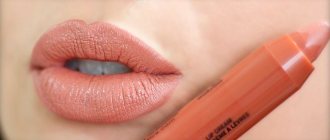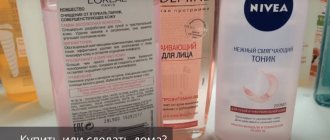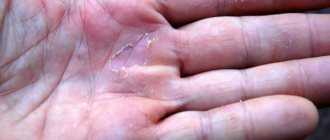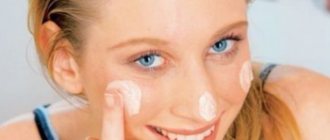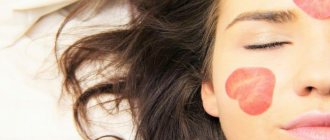“You are what you eat,” Hippocrates taught from time immemorial. Centuries passed, but the truth did not change. It will not be difficult for a competent doctor to understand what exactly is wrong in the patient’s diet based on the condition of the skin. Tatyana Nekipelaya, a cosmetologist and dermatologist, told the Sibmeda portal about the direct connection between proper nutrition and beauty.
Vitamins and microelements
– Tatyana, tell us, by what signs does a cosmetologist determine the lack of certain vitamins and microelements in the body?
– The condition of the skin of the face and body is a “mirror” that shows the work of many processes and reactions in our body. With food we receive the nutrients we need, ensuring the normal course of biochemical processes, the functioning of internal organs, and the regulation of metabolism. That is why, with a lack of certain macro- and micronutrients, some problems can be observed, including those related to the skin of the face and body, hair and nails. Iron deficiency is quite common, which manifests itself as dry, rough skin, and poor condition of nails. Most likely, with iron deficiency, a person will also complain of drowsiness and fatigue. When copper levels decrease, you can see a disturbance in the pigmentation of hair and skin, and a decrease in its elasticity. A deficiency of zinc and sulfur is manifested by hair loss, brittle nails, as well as with an insufficient supply of B vitamins. Vitamin A ensures the softness and elasticity of the skin, and with a deficiency of this vitamin we will see dry skin on both the face and body, and roughness on the elbows.
– Is it possible to look good without having any control over your diet?
– It is impossible to give a monosyllabic answer to this question, since diet is not the only factor influencing the condition of the skin, hair and nails. It is impossible not to take into account the presence of chronic diseases, lifestyle, bad habits, a person’s hormonal status, and the quality of cosmetic care. But, I can definitely say for sure that if you follow a balanced diet and drinking regimen, it is much easier to maintain the health of your skin and the whole body.
How to keep your skin healthy
The condition of our skin is influenced by many factors, from sunscreen to lifestyle. Therefore, to keep your skin looking healthy, you need to keep many important things in mind. It is impossible to talk about all of them, but we can focus on the key ones. 1. Refined sugars and simple carbohydrates. Healthy skin means a healthy body. Since the skin is a part of our body, its condition directly depends on our health. Therefore, it is necessary to pay attention to what we eat. Refined sugars and simple carbohydrates are not good for our skin.
Eating refined sugar causes a process called glycation, in which sugar molecules combine with proteins. This leads to the formation of toxic products that harm the body's cells.
Sugar also makes the collagen structure more rigid. As a result, the elasticity of this important structural protein is reduced, leading to the earlier appearance of wrinkles and folds. This accelerates the aging process and compromises the integrity and elasticity of the skin.
2. Proper nutrition: vegetables, fruits and other healthy foods. It's no secret that these gifts of nature contain many antioxidants, vitamins, fiber and other important substances. All of them work effectively for the benefit of our body and skin, in particular.
Fish and seafood contain polyunsaturated fatty acids, which make the skin look young and radiant. Omega-3 fatty acids form a protective layer on the skin, which prevents the formation of microcracks and retains moisture.
3. A lack of moisture adversely affects skin health. Therefore, you should not save on water. Drink more fluids. If you feel thirsty, then your body is already dehydrated. What's better to drink? Avoid alcohol and coffee. Some recommend drinking melt water, which is especially beneficial not only for the skin.
One of the recipes for preparing melt water is as follows: it is necessary to freeze the water until ice forms on the walls of the dish and on the surface of the water. Then pour the remaining water into another container and freeze again until about a third of the water remains liquid. This water is poured out, and the remaining ice is melted. This is “melt water”. 4. Wrong sleeping position. Don't get into the habit of sleeping on your stomach. Due to prolonged pressure on the facial skin, wrinkles form much faster. Sleeping on your back is better for those who are concerned about their facial skin.
5. Peeling (exfoliation). Peeling cleanses the skin of horny scales, waste products of the sweat and sebaceous glands. Peeling helps speed up the turnover of skin cells. This means that new cells are constantly moving towards the surface of the skin. As a result, the skin appears smoother and more radiant.
Peeling also stimulates collagen production. Mechanical facial peeling using mechanical abrasives or special creams activates collagen synthesis. But after the age of twenty, the production of this important protein decreases. 6. Stop smoking. Cigarette smoke toxins and free radicals significantly accelerate the aging process of skin cells and the formation of wrinkles. The destruction of elastin and collagen fibers leads to sagging and sagging. The blood supply to the skin through the capillary network deteriorates, which slows down recovery and metabolism.
7. The right sunscreen. Sunlight helps the body synthesize vitamin D. But at the same time, too much UV radiation can lead to age spots and wrinkles. This is due to the action of free radicals.
These overactive molecules destroy skin cells, which speeds up the aging process. Choosing the wrong sunscreen can lead to disastrous results. For example, you should not use any sunscreen with vitamin A ingredients (retinol or retinol palmitate). They both accelerate the growth of tumor cells when exposed to sunlight.
Avoid ingredients such as PABA, parabens, oxybenzone, avobenzone and triethanolamine in sunscreen. These chemicals are associated with hormonal and cellular disturbances.
8. Deep, restful sleep. During sleep, our body produces somatotropic growth hormone, which is responsible for most of the signs characteristic of young age.
Growth hormone is synthesized most intensively during the deep stages of sleep. And if your sleep is often interrupted, the production of somatotropic hormone decreases. This prevents our skin from remaining smooth and elastic.
This list may seem too long to some. It is much easier, of course, to use needles, a scalpel or other plastic surgery options. However, natural methods can help keep your skin healthy year after year. Don't forget about them.
Beauty Products
– From the point of view of cosmetology, what products are the “enemies” of beauty?
– Firstly, these are fatty and fried foods, fast food.
It contains high amounts of trans fats, sugar and very little fiber. The main danger of trans fats (margarine is most often used in fast food establishments) is a detrimental effect on the heart and an increased risk of cancer. Secondly, alcohol, which leads to dehydration of the skin and the entire body as a whole, disruption of metabolic processes, and a decrease in the level of collagen and elastin. – What foods should you include in your diet if wrinkles appear and skin loses its elasticity?
– Vitamin A, which is found in carrots, parsley, dry apricots (uryuk), dates, butter, feta cheese, is responsible for the active renewal of the epidermis and the prevention of early formation of wrinkles. Also, to maintain the firmness and elasticity of the skin, it is necessary to include in the daily menu a salad of fresh vegetables with herbs, seasoned with unrefined olive or sunflower oil, oatmeal or buckwheat porridge, steamed wheat sprouts, and fermented milk products.
What foods are good for facial skin?
The ancient Greeks already knew about the influence of food on health and appearance. The legendary physician and healer Hippocrates said that people are what they eat. For this reason, switching to healthy and wholesome food is an important step in the life of every beautiful woman.
Nutritionists recommend including the following foods in your diet:
- Nuts. It is a source of plant proteins, vitamins A, E, B. Unsaturated fatty acids, antioxidants, trace elements and beneficial minerals saturate the skin with youth, inhibit oxidative processes and help maintain water balance. You need to eat them raw, adding a little to salads, sauces, desserts, or just like that, as a light snack.
- Bran. Healthy low-calorie product. Wheat bran contains zinc, necessary for collagen synthesis, and fiber, which normalizes digestion. Vegetable oils. Useful when consumed on an empty stomach. A spoonful of olive, flaxseed or sunflower oil in the morning will speed up the metabolic process and make the skin glow with health from the inside.
- Natural yogurt. Yogurt and other fermented milk products contain lactobacilli, which contribute to the efficient functioning of the gastrointestinal tract. At the same time, the skin of the face acquires a healthy glow and freshness.
- Beet. This product literally saves the skin from moisture loss. Proper nutrition for beautiful skin includes salads and fresh beet juices.
- Chicken eggs. Rich in selenium, which cares for the elasticity of the skin and makes its tone more even. Selenium fights free radicals and saves skin from aging.
- Liver. B vitamins help prevent dryness, dermatitis and redness. There is especially a lot of vitamin B2 in liver: beef or chicken.
- Fatty fish and seafood. Rich in Omega-3 fatty acids, which slow down the breakdown of elastic collagen.
- Green tea. Effectively relieves puffiness under the eyes, accelerates metabolism and maintains vascular tone.
- Water without additives. Skin hydration is directly related to the amount of fluid you drink. You should try to drink at least 2 liters of water per day.
Problem skin
– A common problem with young skin is rashes, redness and oily skin.
Is it possible to solve this by adjusting your menu? – There are cases, especially in teenagers, when certain foods (coffee, sweets, fatty foods, cheese, red wine, citrus fruits) cause excessive secretion of the sebaceous glands or dermatitis. In such cases, it is worth reviewing your diet and reducing your consumption of this food. My advice for those with oily skin is to eat a low-calorie diet, avoid fried foods and limit your intake of whole milk.
Proper nutrition: a menu for everyone for women for beautiful skin
1. Eat at least five servings of fruits and vegetables every day. Fruits and vegetables contain powerful antioxidants that help protect skin from cell damage caused by free radicals. Free radicals, smoking, pollution and sunlight can cause wrinkles and age spots. Eat a rainbow of colorful fruits and vegetables, and try to get at least five servings a day. Beta-carotene, found in carrots, sweet potatoes and pumpkin, and lutein, found in kale, papaya and spinach, are powerful antioxidants important for normal skin cell development and a healthy skin tone.
2. Get enough vitamin C, which is also a super antioxidant: it is essential for maintaining the immune system, promotes radiant skin and helps heal blemishes properly. The best sources are blackcurrants, blueberries, broccoli, guava, kiwi, oranges, papaya, strawberries and sweet potatoes. Vitamin C is necessary for the production of collagen, which strengthens the capillaries that nourish the skin.
3. Don't break your diet. Repeated weight loss and regain can take its toll on the skin, causing sagging, wrinkles and stretch marks. Crash diets often lack essential vitamins and minerals. Over a long period of time, this type of diet will take its toll on the skin. It is always better to choose the right diet for perfect skin, eat healthy, balanced food. If you're planning to try a weight loss plan, make sure you have all the facts first.
4. Stock up on selenium. Selenium is a powerful antioxidant that works alongside other antioxidants such as vitamins E and C to support the immune system. Research shows that a diet rich in selenium can help protect skin from cancer, sunburn and age spots. One way to increase your intake is by eating Brazil nuts—just four nuts will provide the recommended daily allowance (RDA). Mix Brazil nuts with other vitamin E-rich seeds as a snack or sprinkle on a salad. Other good sources include fish, shellfish, eggs, wheat, tomatoes and broccoli.
5. Eat enough vitamin E. Vitamin E protects the skin from oxidative (cellular) damage and supports healthy skin growth. Foods high in vitamin E include almonds, avocados, hazelnuts, pine nuts, and sunflower and corn oils.
6. Drink six to eight glasses of water a day. Skin needs moisture to remain flexible: even mild dehydration will leave it looking dry, tired and slightly grey. Drink six to eight glasses of water a day – all liquids are considered a daily requirement, but water is the best option. If you work in an office, keep a large bottle of water on your desk as a reminder to drink; Herbal teas without caffeine are also good. Don't forget that some fruits and vegetables, such as watermelon, zucchini and cucumber, also contain liquids - an added benefit is that the minerals they contain increase the rate at which your body and skin hydrate. Proper nutrition for healthy facial skin recommends avoiding smoking and excessive alcohol consumption, as both can lead to aging.
7. Eat some healthy fat. Monounsaturated and polyunsaturated fats found in avocados, oily fish, nuts and seeds provide essential fatty acids that act as a natural moisturizer for the skin, maintaining its elasticity and increasing firmness. These fats also come complete with a healthy dose of vitamin E (a vitamin many of us are deficient in) which will help protect against free radical damage.
8. Don't forget about omega-3. Make sure you get enough omega-3 and omega-6 - essential fatty acids, which mean they cannot be made in the body and must be obtained through diet. You'll find omega-3s in oily fish and plant sources such as flaxseed and flaxseed oil, chia seeds, walnuts and canola oil. Omega-3 fats stimulate the body to produce anti-inflammatory compounds, which can help with inflammatory skin conditions such as eczema and psoriasis.
9. Eat more phytoestrogens. Phytoestrogens are naturally occurring chemicals found in plant foods (phyto from the Greek word for plant). They have a similar structure to the female sex hormone estrogen and have been found to help keep our natural hormones in balance. There are different types, some of which are found in soybean products (isoflavones) such as tofu, while others are found in the fiber of whole grains, fruits, vegetables and flaxseeds (lignans). A proper diet for clear skin should include phytoestrogens-rich soy, whole grains, fruits and vegetables as part of a balanced diet.
10. Switch to low glycemic index carbohydrates. The glycemic index (GI) is a system that ranks carbohydrate-based foods according to how slowly or quickly they are broken down into glucose in the body. Try to eat more beans, legumes, oatmeal and other low-calorie, slow-release carbohydrates. They gradually release sugar into the bloodstream, providing a constant flow of energy and leaving you satisfied longer and therefore less likely to crave a snack. Avoid high GI carbohydrates such as cookies and sugary drinks as they release insulin, which can damage collagen and speed up the appearance of wrinkles.
11. Eat more zinc. A proper diet for healthy skin should include zinc,
involved in the normal functioning of the sebaceous glands in the skin (which produce oil) and helps repair damaged skin and keep it soft and elastic. Zinc-rich foods include fish, lean red meat, whole grains, poultry, nuts, seeds and shellfish.
Diet for skin
– Often a strict diet helps us become slimmer, but at the same time we may notice that our skin begins to look worse.
What is this connected with? Which diets have a beneficial effect on the skin, and which, on the contrary, are unfavorable? – Diets with a sharp limitation of any components of our diet, that is, “mono-diets,” lead to a deterioration in the appearance of skin, hair and nails. An exception, perhaps, is the refusal of simple carbohydrates (sugar, flour and confectionery products) in favor of complex carbohydrates (whole grain products), because sugar destroys collagen, which leads to premature aging of the skin. If you adhere to a low-fat diet, you will quickly experience severe dry skin, brittle nails, and hair loss. Your body needs fatty acids, but they need to be healthy ones - polyunsaturated fats, Omega-6 and Omega-3. They are found in walnuts, flax seeds, soybeans, and olive oil.
Another popular diet now - less carbohydrates, more protein - is also not ideal. Excessive amounts of protein in the body lead to low calcium levels and deterioration of bone tissue. The result of such a diet is really obvious; it seems tired and stale. But the Mediterranean diet works wonders: thanks to a large amount of fresh fruits, fish, seafood, vegetables and olive oil, the skin is saturated with Omega-3 and Omega-6 acids, fiber and antioxidants. As a result, you will get not only a slim body, but also elastic skin that glows from the inside.
Cleansing
Washcloths, sponges, brushes and scrubs injure and dry the skin. Don't use them every day, especially if your skin is sensitive.
Don't squeeze pimples! Acne and blackheads need to be dealt with in a civilized manner.
Do not get carried away with antiseptics; it is better to wash your hands more often with regular soap. Although, be careful with it: if you use soap every day, you risk getting irritation.
There should be no detergent left on clothes or bedding after washing. All kinds of fragrances and fragrances dry and irritate the skin. Even if you don't have allergies, don't use scented products or run an extra rinse cycle after washing your clothes. This is especially true in winter, when the air both indoors and outdoors is dry.



